Dear DISC member,
 Welcome to the last newsletter of 2018. For DISC this was a successful year with some highlights: we organized the 37th edition of the Benelux Meeting and a very successful Summer School on Machine Learning for Control, we were asked to organize the ECC 2021 and made it through the first round of the bid for the IFAC WC 2026!
Welcome to the last newsletter of 2018. For DISC this was a successful year with some highlights: we organized the 37th edition of the Benelux Meeting and a very successful Summer School on Machine Learning for Control, we were asked to organize the ECC 2021 and made it through the first round of the bid for the IFAC WC 2026!
But of course this is only possible because of the DISC members who freely give their time to teach DISC courses and organize events such as the Benelux Meeting and the Summer School. Thank you organizers and lecturers, without you there would be no DISC!
We wish all of you a wonderful holiday and hope to see you in 2019!
With season’s greetings,
Henk Nijmeijer,
scientific director
Martha Otte,
DISC secretariat
In January 2019 the following classes will start:

Mathematical Models of Systems
J. Polderman, K. Camlibel and H. Trentelman
Input Design and Parameter Estimation for Non-linear Systems
H. Stigter and K. Keesman
For the full list of courses see: https://disc.tudelft.nl/education/course-program/2018-2019-course-program/
Register on the DISC course platform.
The courses are taught at cursus en vergadercentrum Domstad in Utrecht, location Koningsbergerstraat 9. For more information see their website.
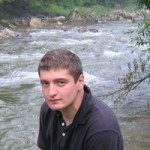
We are busy planning the DISC Winter Course. More detailed information will follow soon, but here is a “sneak preview”. The Winter course will take place form March 27-29, 2019 at the TU Delft. The topic is “Reinforcement Learning” and the lecturers are prof. Ann Nowé (VUB Artificilal Intelligence Lab and guest professor at TUD CoR) and dr. Lucian Busoniu (TU Cluj, Romania).
The organizers have the pleasure of inviting you to participate in the 38th Benelux Meeting on Systems and Control. The meeting will be held from March 19 – 21, 2019 in “Center Parcs De Vossemeren”, Lommel, Belgium,
The aim of this meeting is to promote research activities and cooperation between researchers in Systems and Control. It is the thirty-eighth in a series of annual conferences that are held alternately in Belgium and The Netherlands. The meeting is organized by KU Leuven.
Abstract submission opens: December 16, 2018
Deadline abstracts submission: January 26, 2019
You will find more information on the website:
https://www.beneluxmeeting.nl/2019/ which is continuously updated.
The 148th” European Study Group Mathematics with Industry” will be held from January 28-February 1, 2019 at Wageningen University & Research, Wageningen, The Netherlands
Since 1968, the Study Group Mathematics with Industry has brought together mathematicians and companies. Following the original Oxford model, about 60 mathematicians, ranging from PhD students to full professors, spend a week working in teams on real life problems, presented to them by companies on Monday morning. During a couple of busy days these problems are discussed, modelled, analysed, and computed, and results are presented on Friday.
You are kindly invited to participate in this inspiring modelling week. Check our website: http://www.swi-wiskunde.nl/swi2019/ for more information and problem descriptions. Registration through the SWI 2019 website is compulsory due to capacity constraints. We reimburse hotel costs, but budget is not infinite, so first come, first served.
Hoping to meet you at SWI2019!
The 15th IFAC Symposium on Large Scale Complex Systems (IFAC LSS 2019) will be held in Delft on May 26-28, 2019. We would like to announce the plenary speakers:
Giancarlo Ferrari Trecate (EPFL Lausanne)
Jacquelien Scherpen (Rijksuniversiteit Groningen).
The deadline for submission has been extended to: January 12, 2019. More info in the call for paper: https://www.dcsc.tudelft.nl/~esteur/docs/Call_for_papers_LSS_2019.pdf
The 1st IFAC Workshop on Control methods for Water Resource Systems (http://www.cmwrs2019.org/) will take place on 19 and 20 September 2019 in Delft, The Netherlands. We cordially invite you to submit papers (deadline 21 January) or extended abstracts (deadline 11 February). The main sponsoring committee is TC8.3 on Modelling and Control of Environmental Systems, co-sponsors are TC7.4 on Transportation Systems and TC9.3 on control for Smart Cities.
Participation by the entire control community would be highly appreciated as new and possibly unorthodox ideas are definitely needed. Please contact the organizers if you are interested in participating in a round table discussion or brainstorming session.
In the world of today society places heavy demands on the environment in general and water resources in particular. Waterways supply water for irrigation, support ecosystems, facilitate transport, and provide amenities to local communities. Climate change interferes with the supply of water, so balancing the different human and environmental needs becomes more difficult. Sea level rise combined with subsidence and more intense precipitation events increase the risk of flooding for which more active control solutions are needed. Achieving proper irrigation and drainage is becoming more and more challenging. If we add in the problems of drinking water supply, and the role of water resources in power generation, and the need for a healthy urban and rural environment, then it is clear that every drop of water must perform many different tasks. Control methods play an important role in solving these problems, and this workshop will address theoretical (keywords: non-linear systems, hybrid systems, systems with delay) and practical (large uncertainties in uncontrolled inputs) aspects of the control of water systems.
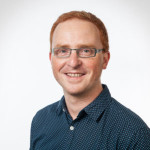 The National Institutes of Health (NIH) are awarding two prestigious American grants to the research team led by Raf Van de Plas from the Department of DCSC. The Van de Plas group has expertise in the mathematical analysis and control of spectral imaging systems and signals, a class of image signals that are used in fields such as material science, forensic science, and the pharmaceutical industry. The American grants both promote medical advancement, and in doing so are supported by the methodological research of the Van de Plas group, for example on the computational fusion of information between different imaging technologies.
The National Institutes of Health (NIH) are awarding two prestigious American grants to the research team led by Raf Van de Plas from the Department of DCSC. The Van de Plas group has expertise in the mathematical analysis and control of spectral imaging systems and signals, a class of image signals that are used in fields such as material science, forensic science, and the pharmaceutical industry. The American grants both promote medical advancement, and in doing so are supported by the methodological research of the Van de Plas group, for example on the computational fusion of information between different imaging technologies.
Read more here
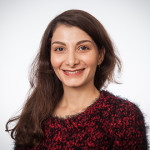 Anahita Jamshidnejad, who performed her PhD research at the department DCSC (Delft Center for Systems and Control), has won the 1st Prize in the 2018 IEEE ITSS Best PhD Dissertation Award competition for her PhD thesis “Efficient predictive model-based and fuzzy control for green urban mobility”, for which she graduated in June 2017, cum laude.
Anahita Jamshidnejad, who performed her PhD research at the department DCSC (Delft Center for Systems and Control), has won the 1st Prize in the 2018 IEEE ITSS Best PhD Dissertation Award competition for her PhD thesis “Efficient predictive model-based and fuzzy control for green urban mobility”, for which she graduated in June 2017, cum laude.
The IEEE ITSS Best Dissertation Award is given annually by the Intelligent Transportation Systems Society (ITSS) of IEEE for the best dissertation in any Intelligent Transportation Systems (ITS) area that is innovative and relevant to practice. The 1st Prize award consists of a plaque and a cash award of USD 2000.
Currently, Anahita Jamshidnejad is a post-doctoral researcher at the Institute for Dynamic Systems and Control of ETH Zürich.
The Department of Mechanics of Solids, Surfaces & Systems (MS3) at the Faculty of Engineering Technology of the University of Twente (UT) is currently seeking for an “Assistant Professor in Control in Mechanical Engineering”, who will be hosted by the research group Structural Dynamics, Acoustics & Control.
University of Groningen
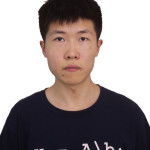 Name: Wei Dai
Name: Wei Dai
Function: Guest researcher
Email: weidai_nudt@foxmail.com
Group: DTPA
Supervisor: Ming Cao
Project: Multi-Robot Dynamic Task Allocation for Exploration and Destruction
I am from China and currently a PhD visitor student in DTPA. My research is about dynamic task allocation in multi-robot system:
Environmental exploration is one of the common tasks in the robotic domain which is also known as foraging. In comparison with the typical foraging tasks, our work focuses on the Multi-Robot Task Allocation (MRTA) problem in the exploration and destruction domain, where a team of robots is required to cooperatively search for targets hidden in the environment and attempt to destroy them. As usual, robots have the prior knowledge about the suspicious locations they need to explore but they don’t know the distribution of interested targets. So the destruction task is dynamically generated along with the execution of exploration task. Each robot has different strike ability and each target has uncertain anti-strike ability which means either the robot or target is likely to be damaged in the destruction task according to that whose ability is higher. The above setting significantly increases the complexity of exploration and destruction problem. The auction-based approach, vacancy chain approach and a deep Q-learning approach are employed in my work to deal with this problem. A new simulation system based on Robot Operating System and Gazebo is specially built for this MRTA problem in my research. Therefore, this research aims at using proposed approaches to solve the MRTA problem in exploration and destruction domain. In addition, experimental results are further analyzed to show that each method has its own advantages and disadvantages.
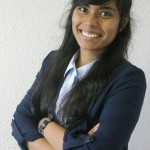 Name: Varsha Krishna
Name: Varsha Krishna
Starting date: 01-12-2018
Function: PhD student
Email: v.krishna@rug.nl
Group: Robotics Group
Supervisor: prof. dr. Raffaella Carloni
Project: Artificial muscles for robotic systems
Hello, I am Varsha Krishna, I recently graduated with a Master’s in Micro and nano systems from Technische Universität Chemnitz, Germany. My Master thesis was based on “Experimental and theoretical consideration of heat distribution in MEMS thermal actuators”. My other research works during the course of my Master studies involved characterization and functional analysis of two-dimensional materials like Molybdenum disulfide and Carbon nanotubes using techniques like CSAFM, SEM and Raman spectroscopy.
I am currently pursuing my PhD degree in the department of Artificial Intelligence, Faculty of Science and Engineering at the University of Groningen. My PhD research focuses on design, fabrication, electro-mechanical characterization and modelling of different stages of an artificial muscle. This is a part of MAGNIFY project, more information about this project can be found on https://www.magnifyproject.eu/
Besides scientific research, I enjoy painting and nature camping, which are in my experience a perfect way to relax and unwind.
Delft University of Technology
Candidate: Ivan Koryakovskiy
Group: CoR
Thesis: Safer reinforcement learning for robotics
Promotor: Prof.dr.ir. H. Vallery and Prof.dr. R. Babuska
Date: 03-12-2018
Location: Aula, TU Delft
Time: 15:00
Candidate: Pavlo Bazilinskyy
Group: CoR
Thesis: Auditory feedback for automated driving
Promotor: Prof.dr.F. van der Helm and dr.ir. J. de Winter
Date: 14-12-2018
Location: Aula, TU Delft
Time: 15:00
Candidate: Kasper van der El
Group: AE
Thesis:How Humans use Preview Information in Manual Control
Promotor: Prof.dr.ir. M. Mulder
Date: 6-12-2018
Location: Aula, TU Delft
Time: 15:00
Candidate: Jaime Junell
Group: AE
Thesis: An empirical approach to reinforcement. Learning for Micro Aerial Vehicles
Promotor: Prof.dr.ir. M. Mulder
Date: 10-12-2018
Location: Aula, TU Delft
Time: 10:00
Candidate: Elisabeth Brunner
Group: DCSC
Thesis: Spline-based wavefront reconstruction for Shack-Hartmann measurements
Promotor: Prof.dr.ir. M. Verhaegen
Date: 13-12-2018
Location: Aula, TU Delft
Time: 12:30
University of Groningen
Candidate: Tjerk Stegink
Group: ENTEG /BI
Thesis: Energy-based analysis and control of power networks and markets. Port-Hamiltonian modeling, optimality and game theory
Promotor: prof De Persis en prof van der Schaft
Date:7-12-2018
Location: Aula Academiegebouw, Broerstraat 5, Groningen
Time:12:45
Wageningen University
Candidate: Nik Grubben
Group: Biobased Chemistry & Technology
Thesis: Modelling ventilated potato bulk storage facilities
Promotor: Prof dr ir KJ Keesman
Date: 19-12-2018
Location: Aula, Wageningen University
Time: 11:00
The next issue of this Newsletter will appear in January 2019
We encourage the contributors to provide newsworthy information. In principle, we intend to publish any message offered. However, we reserve the right to edit certain parts of a submission.
Please send your contributions to: m.w.otte@tudelft.nl
You receive this newsletter because you are a member of DISC. If you want to be removed from the mailing list, please let us know by sending an email to m.w.otte@tudelft.nl